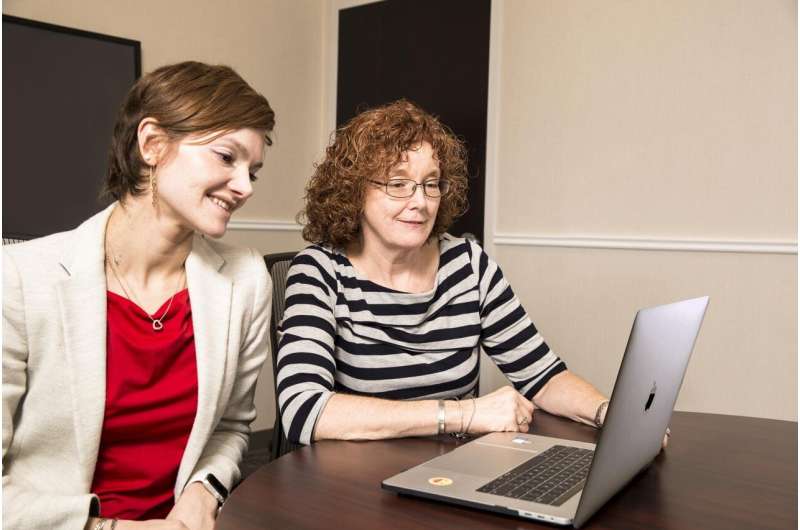#Cognitive rehabilitation improves cognitive impairment in people with multiple sclerosis

“#Cognitive rehabilitation improves cognitive impairment in people with multiple sclerosis”

In a review of recent literature, a team of researchers from Kessler Foundation conclude that cognitive rehabilitation programs are efficacious in treating multiple sclerosis-related cognitive dysfunction, and urge clinicians to consider this low-cost, low-risk, yet effective treatment approach for their patients.
The article, “Neurological update: cognitive rehabilitation in multiple sclerosis,” was published in Journal of Neurologyon May 24, 2021. The authors are Michelle H. Chen, Ph.D., Nancy D. Chiaravalloti, Ph.D., and John DeLuca, Ph.D., of Kessler Foundation. The authors have academic appointments at Rutgers New Jersey Medical School.
Cognitive impairment is a common and debilitating symptom of multiple sclerosis (MS), affecting as many as two-thirds of people with the disease. Symptoms of cognitive impairment vary among individuals, but often include slow information processing speed and inefficient learning and memory. Such deficits can be extremely disruptive to everyday life, affecting a person’s ability to manage their disease, complete commonplace errands, and maintain employment. Unfortunately, there is no gold-standard treatment for MS-related cognitive impairment, as medications approved to treat MS have shown limited efficacy in treating cognitive dysfunction.
One promising treatment approach is cognitive rehabilitation, in which behavioral interventions are used to improve cognition. There are two general approaches to cognitive rehabilitation: restorative and compensatory. Restorative cognitive rehabilitation (also known as cognitive remediation) aims to reinforce, strengthen, and recover cognitive skills, typically through repetitive cognitive exercises using computer-assisted paradigms. In contrast, compensatory cognitive rehabilitation does not aim to restore lost cognitive skills. Rather, it helps patients compensate for their cognitive difficulties using various strategies such as visualization and reminders.
In their review, the Kessler team summarized the current state of cognitive rehabilitation research, both restorative and compensatory, among people with MS. Based on available evidence, they suggest that cognitive rehabilitation is an effective approach to improving MS-related cognitive impairment, as demonstrated by 81 published studies, most of which have been published since 2011.
“Cognitive rehabilitation should be part of a comprehensive treatment plan for people with MS who experience cognitive deficits,” said co-author Dr. DeLuca, Senior Vice President for Research and Training at Kessler Foundation. “Given the lack of approved pharmacological treatments, behavioral approaches are the best treatment options that clinicians can currently offer,” he stressed. “Patients generally report enjoying treatment, which would be conducive to compliance. Furthermore, computer-based treatments can be easily delivered at home, making this low-cost effective intervention more convenient and accessible to individuals in need.”
Experts analyze options for treating multiple sclerosis-related cognitive impairment
Michelle H. Chen et al, Neurological update: cognitive rehabilitation in multiple sclerosis, Journal of Neurology (2021). DOI: 10.1007/s00415-021-10618-2
Provided by
Kessler Foundation
Citation:
Cognitive rehabilitation improves cognitive impairment in people with multiple sclerosis (2021, August 19)
retrieved 20 August 2021
from https://medicalxpress.com/news/2021-08-cognitive-impairment-people-multiple-sclerosis.html
This document is subject to copyright. Apart from any fair dealing for the purpose of private study or research, no
part may be reproduced without the written permission. The content is provided for information purposes only.
If you liked the article, do not forget to share it with your friends. Follow us on Google News too, click on the star and choose us from your favorites.
For forums sites go to Forum.BuradaBiliyorum.Com
If you want to read more Like this articles, you can visit our Science category.



